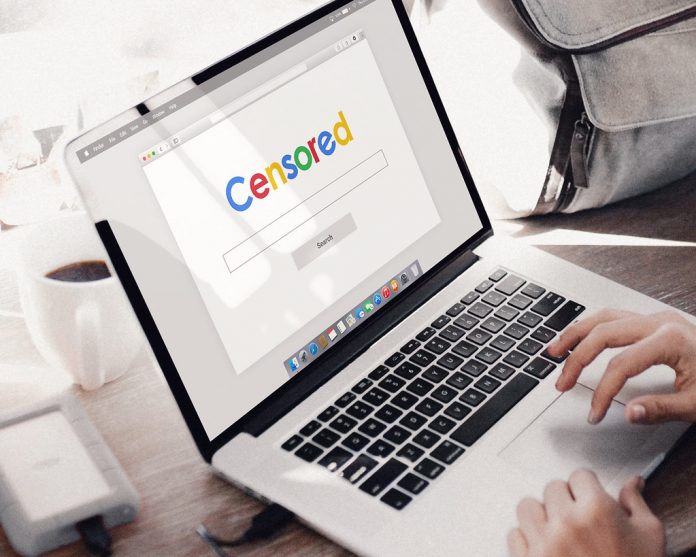The U.S. Supreme Court heard arguments in February regarding Florida and Texas laws designed to stem big tech bias against conservatives.
The laws, both passed in 2021, would limit the rights of social media giants such as Meta, TikTok, X, and YouTube to curate or moderate content posted by their users. The cases have implications for public health policy, and one includes health care professionals among the litigants.
Florida Gov. Ron DeSantis signed Senate Bill 7072 in 2021. The law prohibits companies from “willfully deplatforming a candidate,” something that X, then known as Twitter, and Meta infamously did to then-sitting President Donald Trump after the January 6 riot at the U.S. Capitol. The law also requires platforms to publish their criteria for banning users or content and to apply the criteria consistently. It also allows Floridians to sue the platforms for any violations of the law.
Texas Gov. Greg Abbott signed House Bill 20 the same year. The bill makes it illegal for platforms to censor content based on a user’s viewpoint or location. Like the Florida law, Texas requires platforms to be open about their criteria for removing content, and it also allows residents to sue the companies for any violations.
First Amendment Disputes
In both the Florida and Texas cases, representatives for the social media companies argue that the laws infringe on their rights to choose what content they publish and promote, which they say is protected by the First Amendment.
Should the court uphold the laws, the platforms’ newsfeeds could look radically different than what users are used to, say the social media titans.
The Florida and Texas cases will be one of two social media censorship disputes heard by the court this year. The other is Murthy v. Missouri, in which the states of Missouri and Louisiana accuse the Biden administration of pressuring social media companies to censor conservative viewpoints.
Companies Censoring Users
Getting private entities to do the government’s bidding is the main issue in Murthy v. Missouri, says Jenin Younes, an attorney with the New Civil Liberties Alliance, which is representing Jay Bhattacharya, M.D., Aaron Kheriaty, M.D., Martin Kulldorff, Ph.D., and Jill Hines, who are individual plaintiffs along with the states.
“The primary allegation is that various components of the federal government, including the White House, the CDC, the FBI, and CISA (the Cybersecurity and Infrastructure Security Agency) have been involved in social media censorship in violation of the First Amendment,” said Younes. “Because government is constitutionally forbidden to use private companies to accomplish what it can’t directly, the government may not coerce, pressure, or encourage tech companies to censor users for expressing government-disfavored viewpoints, which is what it did here.”
Both the Texas and Florida cases and Murthy v. Missouri involve First Amendment questions, but those rooting against big tech will find themselves playing offense in the latter case and defense in the former cases, says Younes.
“The Florida and Texas cases are quite different because they’re about whether states can enact laws prohibiting the companies from censoring users, not whether government can involve itself in social media censorship of individuals,” said Younes.
Newspapers or Phone Companies?
“In the Texas and Florida cases, the platforms are asserting that they have First Amendment rights to curate their sites as they choose, much like a newspaper,” said Younes. “That means they can implement and enforce content moderation policies, even if that results in speech suppression—according to them.”
Alternatively, “The states contend that the platforms are more like telegraph or telephone companies than newspapers, because they merely facilitate speech; they don’t convey specific messages of their own,” said Younes.
The states further argue that the platforms may be regulated as common carriers and have no First Amendment right to censor users. Upon hearing oral arguments, the justices were reportedly mixed on the common carrier question.
“If the platforms prevail in the Texas and Florida cases, not much will change—the sites will be able to continue to censor people as they choose, which is the situation we have now,” said Younes.
‘Government Has Enormous Power’
Free speech is a necessity for patients, says Jane Orient, M.D., executive director of the Association of American Physicians and Surgeons, which filed an amicus curiae brief in Murthy v. Missouri.
“We believe it is extremely important that patients be able to obtain information critical for making medical decisions—unfiltered by entities with conflicts of interest, such as Big Pharma or insurers,” said Orient.
“In addition, in the Missouri case, we felt it critical to balance the amicus by [the American Medical Association] (and others) that argues vaccines are perfectly ‘safe and effective’ despite all evidence of adverse effects, and people should be forced to take them,” said Orient. “Private entities are not covered by the First Amendment, so they should supposedly be able to say what they like, except that government has enormous power to suppress what it doesn’t like.”
‘Discourse Is Distorted’
Younes says the tech giants “control the public discourse in a way that the framers of the Constitution could never have imagined.”
Younes said “the public discourse is distorted” when platforms censor one whole side of a debate as misinformation, as in sharing information about COVID-19 vaccine side effects.
“It’s astounding that the solicitor general has taken the position that the States’ regulations—which were accomplished through the democratic process and out in the open—are unlawful,” said Younes, “while defending the federal government’s backdoor, covert attempts to regulate speech by threatening and pressuring the platforms.”
Harry Painter (harry@harrypainter.com) writes from Oklahoma.




















